Table of contents
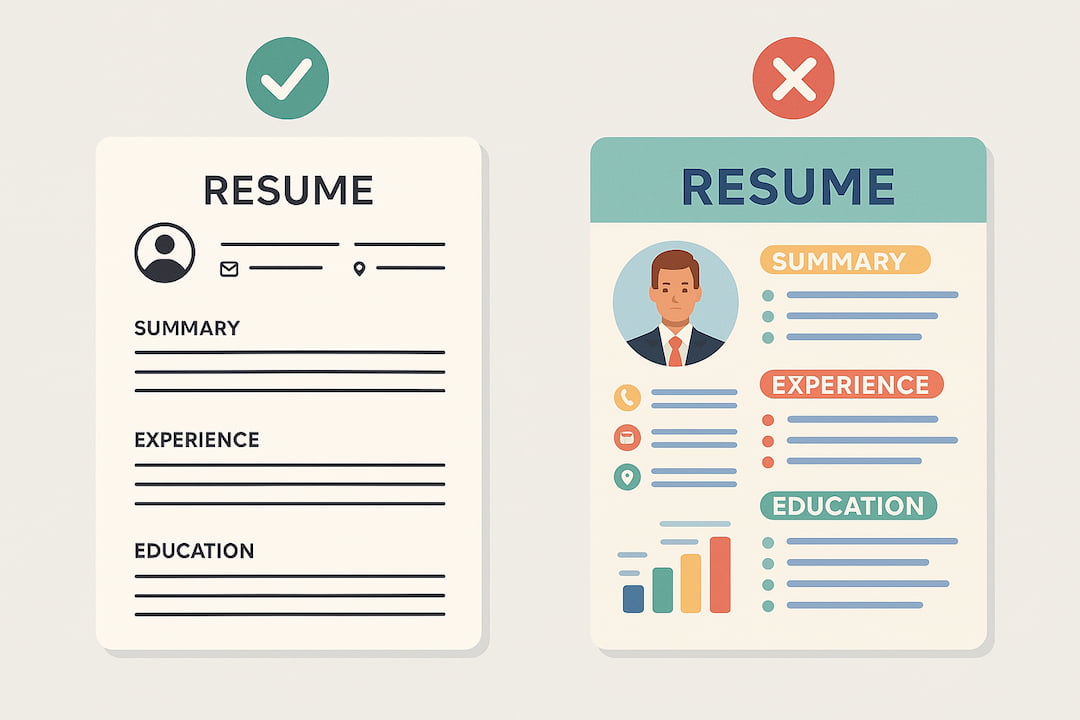
Executive resumes are required if you are applying for a position in a high-level management career and, therefore, differ from standard ones. What’s the difference? Executive resumes contain a tiny answer to the question that means a lot to every recruiter.
So, your resume should explain the benefits that a company would get if you were hired. High-level recruiters, CEOs, COOs, CIOs, CFOs, or Board Members want a convincing answer to the question, “What’s in it FOR ME?” You are not supposed to write how brilliant your skills are. You are supposed to show how you will increase sales, improve working conditions, develop new strategies, raise money, or solve particular problems.
Coping with such an arduous task is not easy. 95% of applicants don’t manage to do it. Trying to write an effective executive-level resume, they produce a standard basic resume. To avoid their failures, you can find executive resume writers who will provide you with executive resume objectives and other executive documents. For instance, reputable online executive CV writer services like the Resume Writing Lab would be functional.
Otherwise, you can try to write this paper independently and be among the 5% of applicants with flawless executive resumes.
Never Lie, But…
… tell them what they want. Almost every recruiter initially doesn’t care about your wishes and goals. When choosing a promising employer, he or she only cares about himself or herself. Therefore, don’t try to amuse your potential employer with your brilliant skills and substantial working experience.
Look through the requirements in the ad or elsewhere and fill your executive resume with valuable information about this particular company. Your goal is to show that there is a precise fit between their needs and your skills.

A well-written executive resume is more than just a formality in today’s very competitive job market; it’s a strategic tool that can help you get highly sought-after leadership roles. Your resume is like a personal marketing piece; it should show off your career highlights and key achievements so that you stand out from other highly qualified applicants.
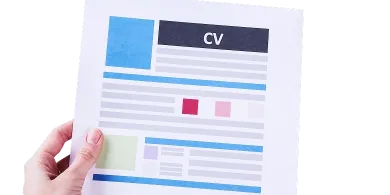
Executive-level applicants must deal with special problems and meet higher standards. In addition to a strong track record, it’s important to show visionary leadership and strategic effect. Employers want to hire people who can lead their teams to success. This means that your resume needs to show what you’ve done in the past and how you can help the company grow in the future.
An executive resume differs from a standard resume in style and substance, showing the higher-level responsibilities and strategic vision expected in executive positions. Unlike shorter resumes built for mid-level or entry-level roles, the executive resume typically spans 2-3 pages, guaranteeing enough room to showcase strategic planning expertise, leadership skills, and a proven track record of driving business growth. A regular resume might only list previous employers and job descriptions, but an executive resume goes into more detail to highlight key accomplishments, industry knowledge, and executive leadership skills. These are all things hiring managers and boards of directors look for in senior executive positions.
The extended length of an executive resume offers an opportunity to emphasize relevant qualifications, leadership experiences, and the breadth of professional social media accounts, like an optimized LinkedIn profile. This additional detail is critical for demonstrating a comprehensive track record of success in financial management, business operations, and leading diverse teams.
At this stage, most executive jobseekers have amassed wide-ranging achievements beyond day-to-day tasks. Hence, focusing on measurable results, such as operational efficiency improvements or revenue increases, provides evidence of one’s capacity to guide organizations at the highest level.
Another hallmark of the executive resume is its emphasis on leadership, strategy, and tangible outcomes rather than merely listing professional experience. Executive roles require technical skills, strategic insight, and an ability to inspire teams. Therefore, an impactful executive resume serves as a platform to underline these leadership qualities alongside a demonstrated ability to meet stringent job requirements.

Jobseekers who show measurable accomplishments and relevant experience have a better chance of getting hired. This is true for human review and application tracking systems designed to eliminate unqualified candidates.
Executives often choose a hybrid resume or reverse chronological resume layout to ensure the information is well-organized and easy to understand. You can show steady career growth and consistent success in executive roles like Chief Executive Officer, Chief Operating Officer, or Chief Financial Officer by listing roles in reverse chronological order, starting with the most recent or current post.
A hybrid resume, on the other hand, combines parts of functional and chronological resumes to give a short summary of key accomplishments and relevant skills. This is especially helpful if one’s background spans multiple industries or includes various top leadership roles.
Lastly, an executive resume should showcase the person’s unique qualities by emphasizing their most impressive achievements, leadership skills, and strategy for the future. By making an informative resume that meets the needs of managers, you can show that you are ready for the next task and your strategic value. This puts you in the position of a leader ready to lead an organization to long-term success.
The executive summary is your personal brand statement at the top of your executive resume. It is typically a brief yet powerful overview that conveys your core value proposition, leadership skills, and the key ways you drive organizational success. The ultimate goal is to capture managers’ attention within seconds and encourage them to read further.
An ATS will look through your resume for keywords related to the job. The senior executive resume is also a chance to match your hard and soft skills with the job requirements for executive roles like Chief Executive Officer, Chief Marketing Officer, or Chief Financial Officer.
Clarity and conciseness are crucial when writing a summary. Focus on your proven track record and demonstrate instances where you delivered measurable results, such as boosting revenue, improving operational efficiency, or spearheading successful strategic planning initiatives.
Highlight your industry expertise, key accomplishments, and the most significant aspects of your professional experience that align with the role you’re targeting. Since a summary is a high-impact introduction, it should be written confidently, avoiding overly technical jargon unless it directly relates to your qualifications.
Because recruiting managers often skim resumes, keep your summary to three to five lines of text. This will help jobseekers make an immediate impression on the manager. Highlight your strongest skills, like team leadership, business development, or financial management, while ensuring they match the job’s needs.
Metrics and results can help you show you are ready for executive roles. Instead of “Managed a large team,” you could say something like “Led a cross-functional team of 50+ to increase annual revenue by 20%.” These concrete examples of your success show you can handle tough business problems.
Make sure that your resume summary meets the goals in the job description. If you are looking for the job of Chief Technology Officer, make sure you highlight your administrative efficiency skills. If you like to be a Chief Information Officer, you should highlight your technical skills, work on digital change projects, and ability to manage big IT projects.
“Chief Revenue Officer with over 15 years of success driving business growth for Fortune 500 companies through conceptual branding and cross-channel sales strategy. Recognized for leading several teams to achieve double-digit revenue gains and forging strategic partnerships that outperformed market benchmarks. Skilled in forging a unified vision, building high-performing teams, and consistently delivering results that exceed job requirements.”
“Vice President with a proven track record in financial analysis, strategic planning, and C-level stakeholder engagement. Known for transforming underperforming divisions into profit centers, optimizing processes, and leading cross-functional teams to outperform industry benchmarks. Highly passionate about leveraging data-driven insights to improve organizational performance and sustain long-term business development.”
The most important thing is to ensure your summary is specific to the role and industry you’re interested in. You can write a short but powerful introduction highlighting your most relevant and valuable skills. This will set the tone for a compelling resume that will appeal to both computer programs and real people.

One of the most critical components when learning how to write an executive resume is showcasing achievements in a way that underscores tangible impact. In today’s competitive job search climate, demonstrating quantifiable results can set you apart from other job seekers vying for similar high-level roles. Unlike entry-level or mid-career resumes where responsibilities might suffice, an executive resume must present your key achievements and hard skills in a way that resonates immediately with managers and executive recruiters.
Metrics show how big, important, and widespread your efforts are. There is a big difference between candidates who say they “improved departmental efficiency” and those who say they “increased operational productivity by 25% through streamlined processes, resulting in a cost savings of $500K annually.” A resume with clear numbers looks better, and also helps managers see how your work fits in with the job description. They show that you have the executive skills to get measured results, whether it’s in revenue generation, strategic planning, or team performance.
When deciding which achievements to highlight, consider whether they align with the executive job descriptions you’re targeting. Ask yourself:
Choose accomplishments that showcase both your social skills (e.g., stakeholder relationship management, human resources stewardship) and hard skills (e.g., data-driven decision-making). If you have relevant certifications or specialized expertise, particularly for role like Vice President of Product, integrate these details to demonstrate that you meet the relevant experience criteria.
A popular approach in executive resume writing is the CAR method, which helps structure your bullet points around three key components:
You can make an interesting story that shows what you did and why it was important to the group by following the CAR. This is especially useful for jobs that need advanced executive skills, like managing big budgets, leading teams, or changing the way a company works.
You can show tangible results in this way whether you hire a professional full-service resume writer online or write an executive resume independently. It makes you seem more trustworthy. It strongly suggests that you can figure out the issues, create reasonable solutions, and get results that align with the business’s strategic goals. Including these metrics in your executive resume template improves your personal brand and shows that you can give real benefits. Remember that metrics, achievements, and a results-driven focus remain the recognized job search currency in executive hiring.

When you list your work experience on a resume, you should focus on showing that you can lead, that you’ve moved up in your career, and that you’ve had a strategic effect. It’s not enough to just list what you’ve done; you need to stress how you’ve led organizational growth, handled cross-functional teams, and found solutions to important business problems.
The job you had the most recently or the one with the most responsibility should be at the top of the list. This ensures that managers can immediately see how senior you are and how broad your leadership skills are.
You should mention your steps if you went from being a mid-level manager to a vice president or C-suite position. For example, you could share promotions, take on more responsibility, and make considerable changes in your sphere of influence, like going from being responsible for one department to multiple divisions.
Aim for 4 to 6 bullet points per role when describing it. Lesser is better if the job is more than 10 years old or if it has little to do with your current career goals. Each bullet point should focus on an outcome, giving specific, measurable accomplishments instead of general tasks or responsibilities. Quality over quantity is important; too many bullet points can dilute your message and hide your most important successes.
Listing their last 10-15 years of work experience is enough for most executive-level candidates. Unless they are directly related to the job you’re looking for (for example, a background in technology for a future Chief Technology Officer role), roles might be shortened or summed up after this time frame. Employers are most interested in your recent accomplishments because they show what you can do now and how much you’re worth in the job market. You could include a short section on your “Early Career” or “Additional Experience” if you have accomplished something significant early in your career, like running a groundbreaking project.
If you can, connect the duties and accomplishments of each job to the job title of the one you want. For example, if you’re going for the chief commercial officer job, stress how you’ve led large-scale operations, increased efficiency, and solved difficult organizational problems. When you mention each job, keep your audience in mind.
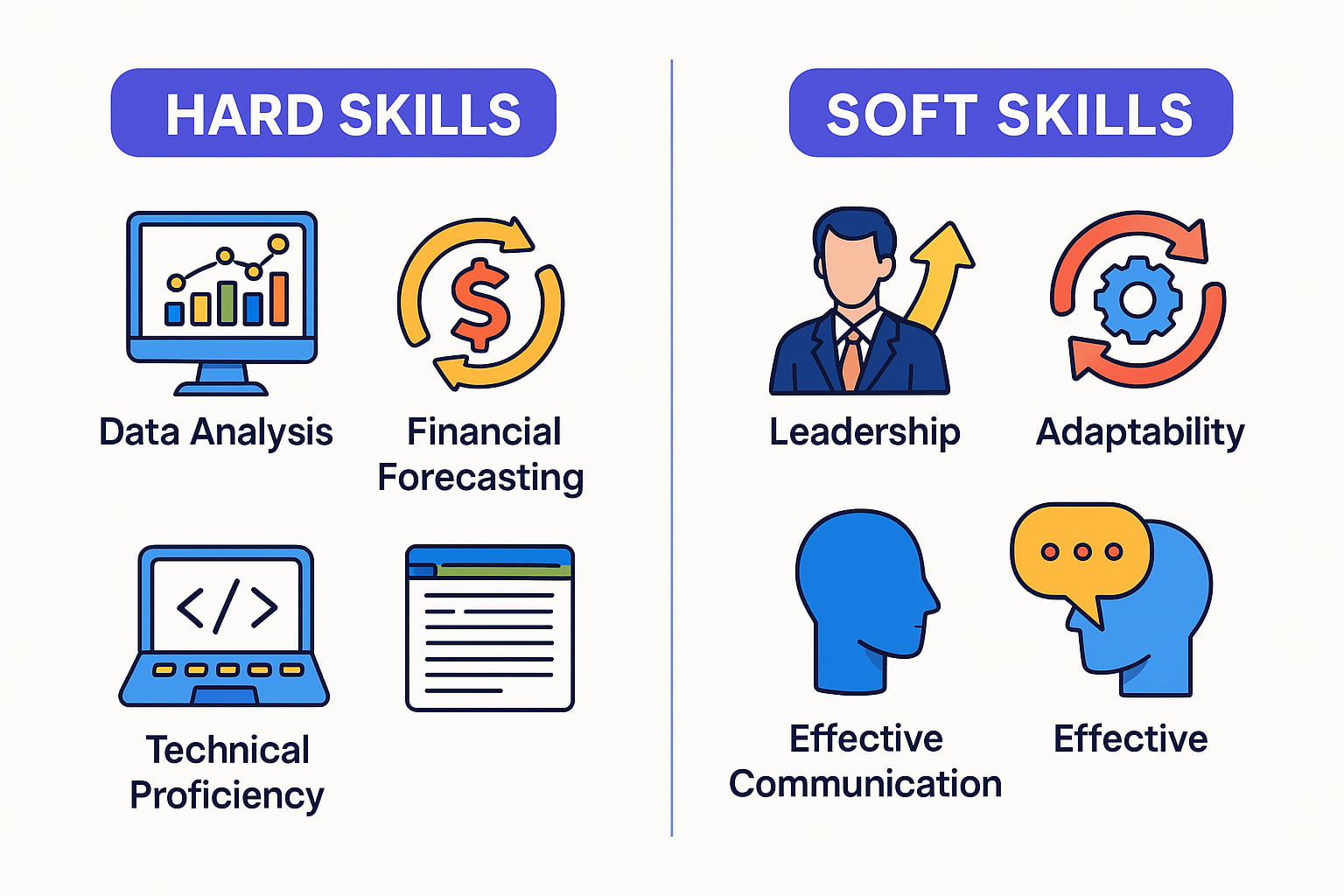
In today’s competitive job market, creating an executive resume showcasing your core competencies and skills is important. Employers want leaders who can show how their skills helped the company succeed.
Key competencies for boss roles include:
Both hard and soft skills should be included in a strong executive resume:
To effectively incorporate these:
To make it work better with Applicant Tracking Systems (ATS) and get managers’ attention:

On your executive resume, it’s essential to show off your schooling, certifications, and professional development activities in a way that shows you are qualified and want to keep learning.
When detailing your educational history, include the following information for each degree:
List your degrees in reverse chronological order, starting with the most recent. If you hold multiple degrees, prioritize those most relevant to your chosen role.
By highlighting certain knowledge, certifications can greatly improve your CV.
Place certifications in a dedicated section titled “Certifications” or “Professional Certifications”.
For experienced executives, the education part usually comes after the professional experience part. This approach stresses your many years of professional experience and leadership successes. But if the position calls for a certain degree or qualification, highlight it more prominently.
Executives must show a dedication to lifelong learning. Add a “Professional Development” part to emphasize:
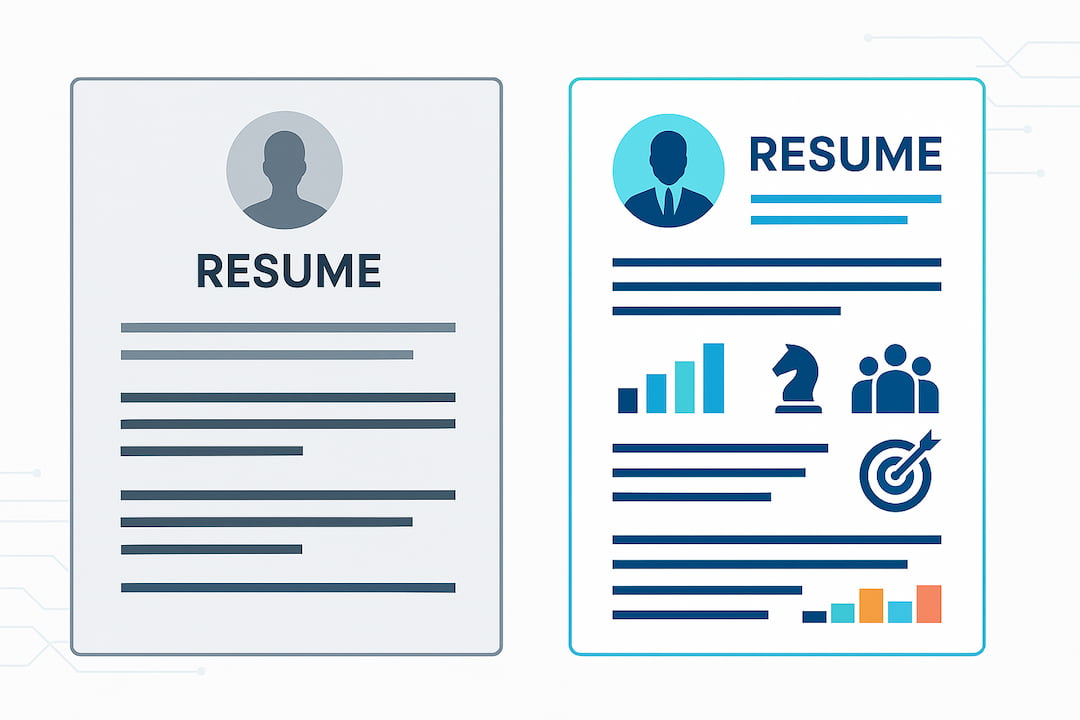
A polished executive resume should appear as the strategic planning narratives it conveys. Begin with a simple, single-column design that maintains lots of white space and applies conventional section titles (“Professional Experience,” “Education,” “Skills”). Avoid text boxes, columns, and headers/footers that could mix data since applicant-tracking systems (ATS) scan from left to right and top to bottom.
By following these basic design rules when writing an executive resume, whether for a sales executive position or a profile that’s ready for the board, you ensure that recruiters see the strategic effect first, not the formatting mistakes. Your leadership story will stand out at every stage of resume or cover letter writing because of its clean style and interesting content.
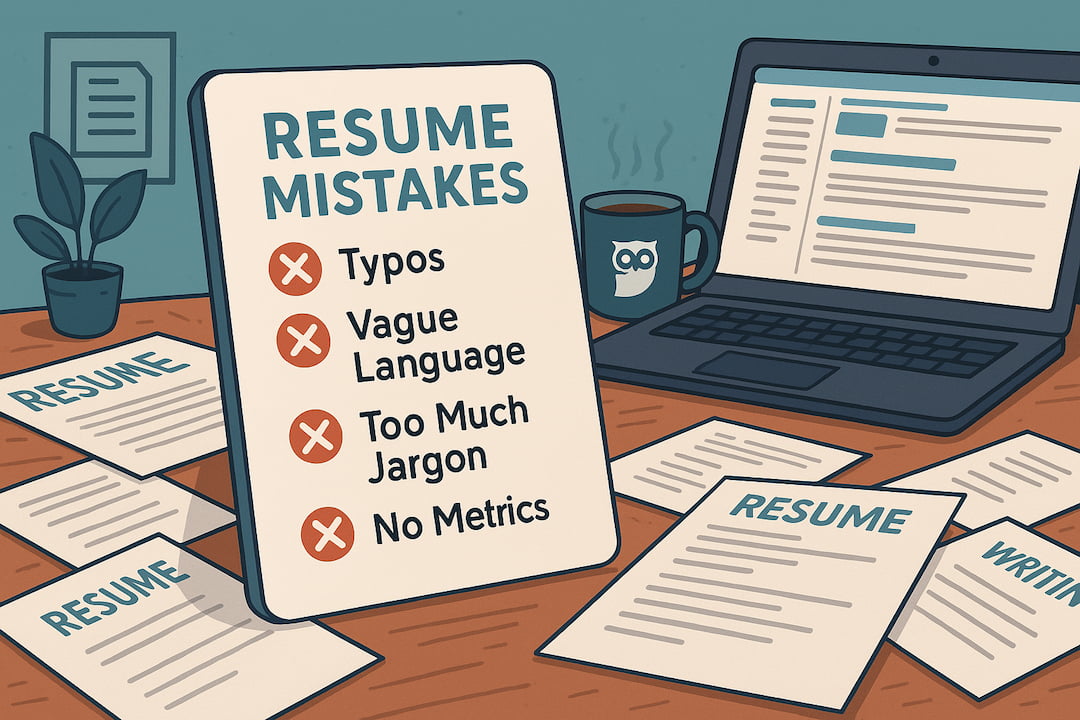
Writing a executive resume is as much about avoiding missteps as it is about showcasing achievements. Recruiters typically skim a document for only a few seconds before deciding whether a Chief Executive Officer, or Vice President, moves forward in the job search, so every line must reinforce your personal brand.
Former Amazon hiring leaders note that many executives simply list activities: “managed P&L,” “led teams”, instead of results. Replace generic tasks with metrics‑backed impact statements to prove value and keep readers engaged.
An analysis of resume rejections indicates that human reviewers and APT quickly discard documents not tailored to the target job description or overloaded with industry buzzwords. Focus on accomplishments that map directly to your desired role, and trim details that don’t serve that goal when you write an executive resume.
Spelling mistakes and inconsistent spacing signal carelessness, fatal for leaders expected to model precision. Career coaches recommend multiple proofreads, reading aloud, and asking a trusted peer (or even finding a professional executive resume writer) to review the file before submitting. Treat the resume with the same rigor as a board memo or cover letter.
More than 60 percent of job seekers admit to embellishing titles or results, a risk that can end careers if uncovered during reference checks or background screening. Inflated claims might land an interview, but they can tarnish your reputation and LinkedIn profile for years. Stick to verifiable facts, quantify honestly, and be prepared to discuss every bullet in detail.

Even the most excellent sales executive resume will miss the mark if it isn’t fine-tuned for the role. Recruiters and ATS algorithms scan for evidence that you understand and can solve the company’s pain points. So, each time you write an executive resume, treat it as a bespoke marketing document. Adding the exact job title (e.g., Chief Executive Officer or Vice President) and sprinkling keywords from the posting into your summary, skills section, and accomplishments dramatically raises your match score and helps decision‑makers see an immediate fit.
Start by dissecting the ad: highlight recurring phrases, required competencies, and cultural cues. Map those elements to your achievements, then reorder or rewrite bullets so the most relevant metrics appear first. Quantify results that mirror the organization’s goals if the firm touts sustainability, emphasizes cost-saving green initiatives, prizes innovation, and showcases product launches. Research the employer’s mission statement and leadership interviews on its LinkedIn profile or website; echo their language to demonstrate cultural alignment while preserving your unique personal brand.
You may show your passion for the position, provide context that doesn’t always fit into lists, and link your resume’s strengths to the company’s priorities with a well-crafted cover letter. A good career coach working for the best executive resume writing services would tell you to start with a hook that talks about a recent accomplishment or problem the company faces and then list just a couple of your resume’s accomplishments that address that specific requirement. Remain brief (no more than three or four paragraphs) and use the same tone as your employer.

For senior leaders, an optimized LinkedIn profile is no longer optional; it is the public face of your personal brand. Surveys show that 87-94 percent of recruiters use LinkedIn to vet candidates before deciding who advances in the hiring process. That means your digital story must echo the leadership narrative you present when you write an executive resume.
Repurpose key metrics and accomplishments from your CV, but translate them into LinkedIn-friendly elements: a headline more than “Vice President, Operations,” an About section that spotlights signature wins, and role descriptions that showcase quantifiable impact. Populate the featured area with media (articles, white papers, keynote clips) reinforcing domain authority.
Beyond scanning titles and dates, talent teams review your engagement (posts, comments, and groups) to gauge cultural fit and thought-leadership potential. They also compare the scope of your LinkedIn network to the influence level expected of a Vice President or C-suite leader.
Because cyber incidents targeting executives’ personal accounts jumped in 2024, safeguarding your online presence is as much a risk-management issue as a branding one.
A well-crafted executive CV has five main components: a summary that is driven by the brand, accomplishments that are rich in metrics, leadership experience that is presented in a clear and sequential manner, an ATS-friendly design, and customization based on the role. What boards and hiring committees seek in a CEO, CFO, VP, or other senior leader is a unified story of strategic vision, operational excellence, and quantifiable value, and these components come together to form that story. The best approach to stand out in a competitive job market is to have a concise, clear resume that provides quantitative proof of outcomes, according to recent advice on 2026 resume trends.
Treat your resume as a dynamic record, not a one-off project. Career strategists recommend updating it quarterly (after every significant win) so stats remain current and examples remain relevant. Regular updates prepare you for unexpected chances and promote confidence by reminding you of fresh triumphs.
Before each submission, solicit feedback from trusted peers, mentors, or an executive-level resume coach. A second set of eyes can catch vague language, formatting glitches, or inconsistencies between the résumé, LinkedIn profile, and personal statement. Incorporate their insights, proofread meticulously, and save the final version in an ATS-safe format (.docx or text-based PDF).
Your executive resume should contain a clear message revealing your value for a company. Detailed information about the positions you have ever occupied should support this message. If you have occupied several positions, you may write resumes to demonstrate your skills in every field if they differ.
Such executive resume examples, like this one, give an overall picture of the skills and qualities essential for the position you are applying for. That inappropriate information must be removed.
Describing responsibilities and showing achievements are two different things. Almost every recruiter would like to meet an applicant who provides a clear picture of his or her accomplishments. “Blah, blah, blah” doesn’t attract anyone nowadays.
Therefore, if you increase sales, don’t just write “increased sales.” Provide data, graphics, or statistics. If it is confidential, use “approximately” for every index that makes sense.
 Flashy headlines containing main information and ready to attract attention are good. They are really good, and being able to create a good resume headline is essential for every job seeker, BUT context is everything. You must provide a reader with a little bit more information that is unimportant on the surface but important for the recruiter.
Flashy headlines containing main information and ready to attract attention are good. They are really good, and being able to create a good resume headline is essential for every job seeker, BUT context is everything. You must provide a reader with a little bit more information that is unimportant on the surface but important for the recruiter.
Here is a difference between:
And:
The difference is visible to the naked eye. Do you agree?
Your goal is to mention the challenges you have faced during your employment but focus on their overcoming and solving. This step will prove that you can work in unstable and stressful conditions to improve the situation.
Furthermore, knowledge received during the tough period is more appreciated as it provides precious experience for every employer.
Remember that formatting matters. Your resume has to be formatted wisely to draw attention and highlight the main information. Therefore, use bolding, highlighting with colors, and other formatting tricks to make your resume readable and attractive.
Writing an executive resume may be challenging, tedious, or impossible, BUT you must remember that nothing comes to us “for free.” A tidbit is often given to those who worked hard and showed impressive results. Be patient and use our directions to create a compelling and powerful executive resume. But remember that you can always ask for advice from our top resume writers online!